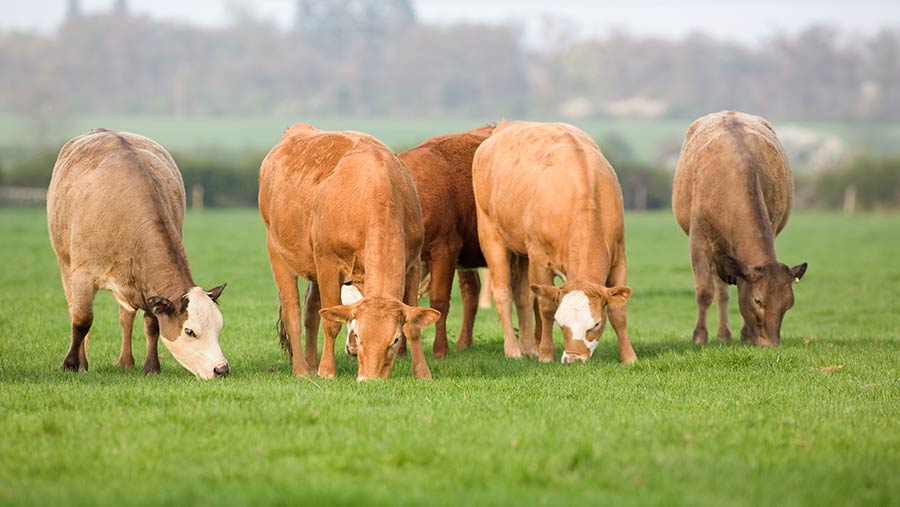ORFC 2021: Livestock ‘have key role in sustainable farming’
 © Tim Scrivener
© Tim Scrivener Ruminant livestock have a key role to play in a transition to a sustainable farming system to tackle climate, nature and health crises, according to new analysis.
Grass-fed beef cattle and sheep farming systems are recognised as having an important role in agroecological food systems in the UK, says the Farming For Change report (PDF) by the Food, Farming and Countryside Commission (FFCC) charity, published on 7 January to coincide with the Oxford Real Farming Conference.
The study says ruminant livestock have “morphed into the climate villain of global agriculture”. But it argues that pasture-fed livestock should be “right at the heart of functioning, balanced agroecological system”.
See also: How do three main farm carbon calculators compare?
This is because of their capacity to improve soil fertility through their manure and enable farmers to “harness the potential of our grasslands to produce nutrient-dense protein”.
French model
The FFCC report is based on the “Ten Years for Agroecology Europe” model by the French Institute for Sustainable Development and International Relations (IDDRI), regionalised for the UK. It acknowledges that ruminants are significant contributors to greenhouse gases, with enteric fermentation (the digestion of organic materials by livestock) and methane emissions.
The model estimates that by 2050 ruminant livestock will contribute 28% of remaining agricultural emissions in the UK.
But the study highlights their capacity to transform nitrogen from UK grasslands into organic fertiliser that is “far less volatile” than synthetic nitrogen fertiliser. Therefore, they could help in the elimination of synthetic fertilisers and pesticides.
In summary, the IDDRI model recommends “less but better” meat consumption. Under the analysis, production of beef would fall by 3% and sheep by about one-third by 2050.
But although it recognises the role of pasture-fed livestock in agroecological food systems, overall livestock production would reduce by 36% in an IDDRI scenario.
Production of chicken, pork, eggs and dairy would be slashed by almost 50% by 2050. This would free up more land for agroforestry and rewilding.
Plant-based diets
Legumes and pulses would play an important role in the IDDRI diet “both for their protein content and their ability to fix nitrogen in the soil”. As a result, more UK farmland would be used to grow fruit and vegetables, which would make up the bulk of diets.
The study advocates the release of 7.5% of the current UK agricultural area (more than 1.2m hectares) for more flexible use. For example, increased grazing for pasture-based livestock exports or increased woodland to support industry ambitions to achieve net-zero carbon emissions.
With the right enabling conditions, it says the UK could grow enough healthy food for a future population, while reducing GHG emissions by 38% by 2050 – with the potential to offset 60%-plus of emissions through afforestation.
What next?
Sue Pritchard, the FFCC chief executive, said: “The need to tackle the climate, nature, health – and now economic – crises could not be more pressing.
“This research will help us broaden our options and understand the potential for agroecology as an integrating approach that could have real impact across all these issues.
“Our modelling is a fascinating tool to understand the implications of a transition to agroecology on carbon sequestration, reaching net zero targets, nature recovery, growing more healthy food and much more.”
The FFCC says it plans to explore the practical implications of this research with policymakers, food and farm businesses and others, and develop a full technical study to be published in spring 2021.
